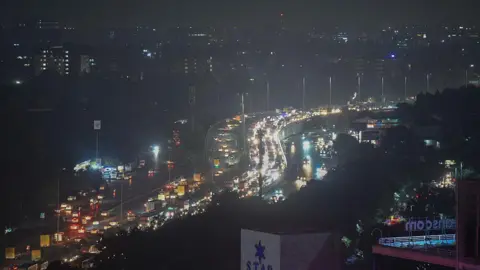In Maharashtra, India’s wealthiest state, tensions surrounding language and cultural identity have escalated into violent confrontations. The unrest began when the state government mandated that primary schools teach Hindi as a third language alongside English and Marathi, aligning with a contentious national education policy aimed at promoting multilingual education. Critics argue this decision represents a form of Hindi imposition that undermines local identity.
India is characterized by its rich linguistic diversity, with many states, including Maharashtra, established along linguistic lines after independence. As languages are closely tied to regional pride, changes in language policy can provoke strong reactions. In Bengaluru, for example, activists protested against English-dominated billboard advertising, highlighting the broader struggle over language representation across the nation.
The controversy in Maharashtra intensified as language activists, civil society groups, and opposition leaders condemned the government's move, fearing that it undermines regional languages, particularly as migration from Hindi-speaking states has surged. Political analyst Abhay Deshpande notes that these sentiments have grown since the rise of the Hindu nationalist Bharatiya Janata Party (BJP) in 2014, magnifying anxieties about cultural dilution.
In response to the backlash, the BJP-led government has suspended its language policy and formed a committee to reassess the implications. However, the issue has fueled significant political posturing ahead of anticipated municipal elections in Mumbai. There have been alarming reports of violence against non-Marathi speakers, including assaults over language disputes in various incidents.
In an unusual display of unity, political rivals Uddhav Thackeray of the local Shiv Sena (UBT) and Raj Thackeray of the Maharashtra Navnirman Sena (MNS) merged efforts last week to contest the alleged imposition of Hindi. This coalition may reshape the political landscape in the upcoming elections, as both leaders seek to appeal to Marathi pride. Political observers suggest that while focusing on linguistic identity can mobilize voters, it raises concerns over parochialism and potential violence.
Critics and political commentators, such as former journalist Prashant Dixit, argue that short-term support for such agendas will not substitute for genuine policies addressing socioeconomic issues. The dynamic is reminiscent of past tensions, where political rhetoric around language led to public unrest, suggesting that the path forward remains fraught with complexity and societal division in Maharashtra.





















